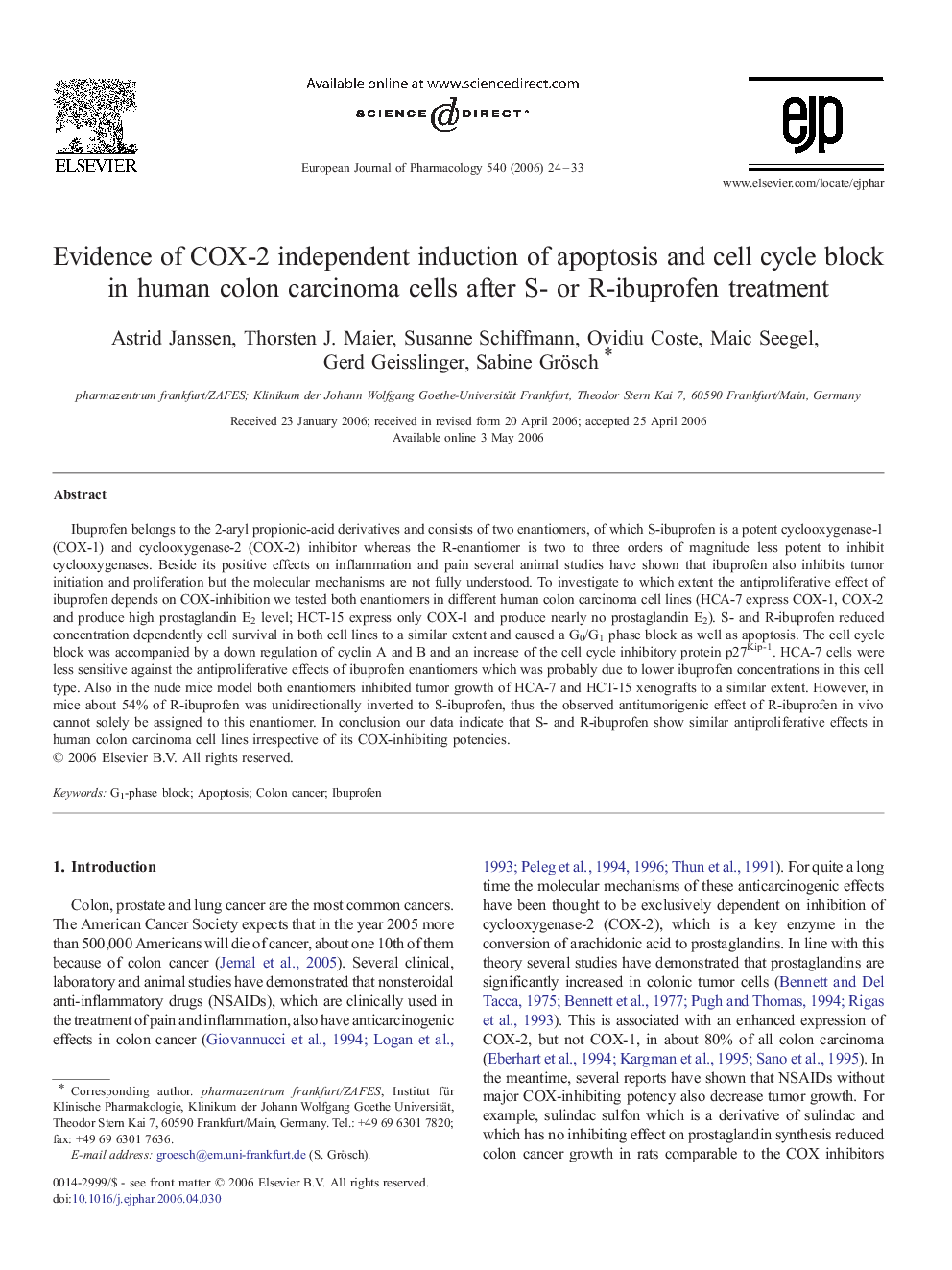| Article ID | Journal | Published Year | Pages | File Type |
|---|---|---|---|---|
| 2537065 | European Journal of Pharmacology | 2006 | 10 Pages |
Ibuprofen belongs to the 2-aryl propionic-acid derivatives and consists of two enantiomers, of which S-ibuprofen is a potent cyclooxygenase-1 (COX-1) and cyclooxygenase-2 (COX-2) inhibitor whereas the R-enantiomer is two to three orders of magnitude less potent to inhibit cyclooxygenases. Beside its positive effects on inflammation and pain several animal studies have shown that ibuprofen also inhibits tumor initiation and proliferation but the molecular mechanisms are not fully understood. To investigate to which extent the antiproliferative effect of ibuprofen depends on COX-inhibition we tested both enantiomers in different human colon carcinoma cell lines (HCA-7 express COX-1, COX-2 and produce high prostaglandin E2 level; HCT-15 express only COX-1 and produce nearly no prostaglandin E2). S- and R-ibuprofen reduced concentration dependently cell survival in both cell lines to a similar extent and caused a G0/G1 phase block as well as apoptosis. The cell cycle block was accompanied by a down regulation of cyclin A and B and an increase of the cell cycle inhibitory protein p27Kip-1. HCA-7 cells were less sensitive against the antiproliferative effects of ibuprofen enantiomers which was probably due to lower ibuprofen concentrations in this cell type. Also in the nude mice model both enantiomers inhibited tumor growth of HCA-7 and HCT-15 xenografts to a similar extent. However, in mice about 54% of R-ibuprofen was unidirectionally inverted to S-ibuprofen, thus the observed antitumorigenic effect of R-ibuprofen in vivo cannot solely be assigned to this enantiomer. In conclusion our data indicate that S- and R-ibuprofen show similar antiproliferative effects in human colon carcinoma cell lines irrespective of its COX-inhibiting potencies.
